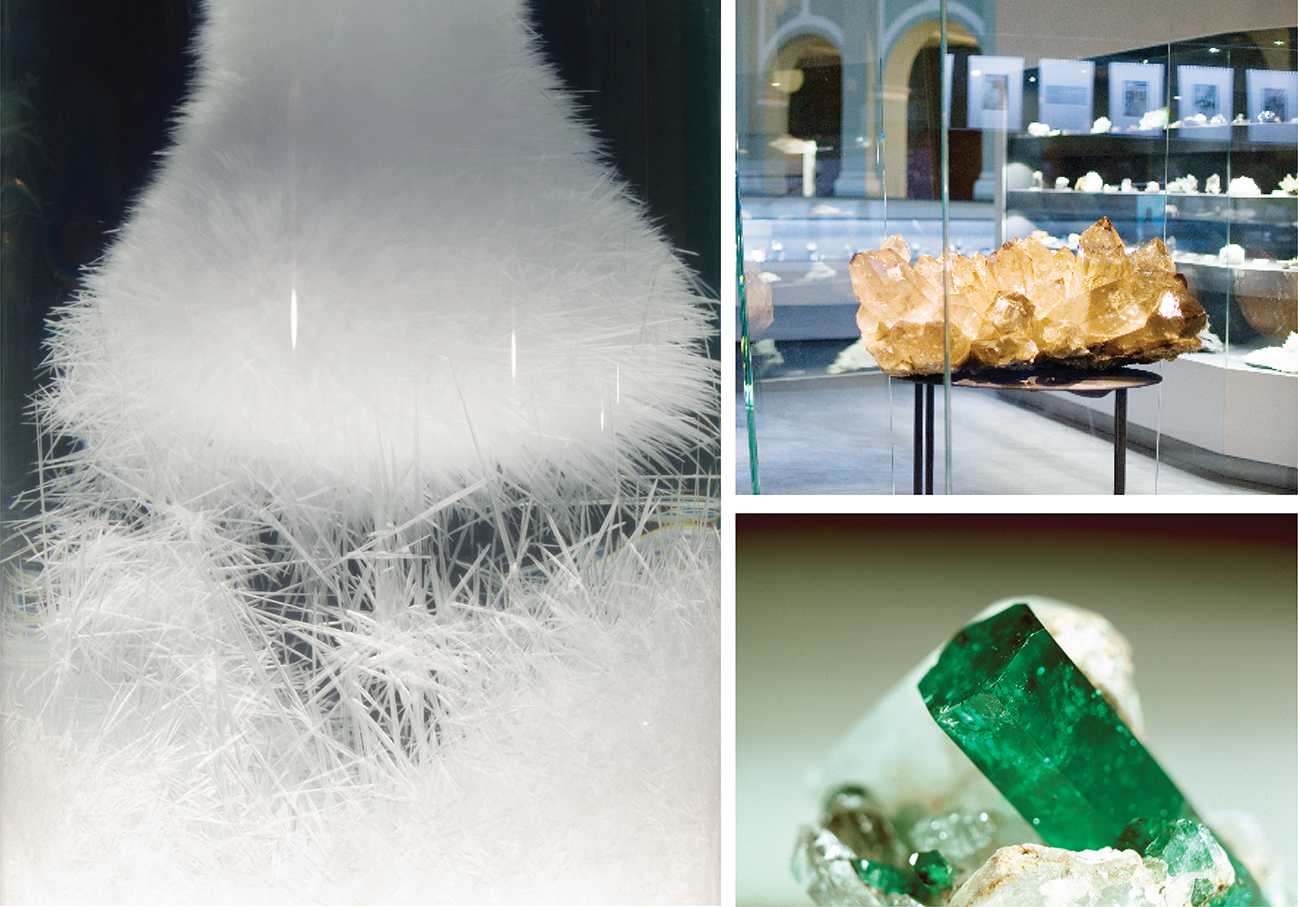Growing crystals

The colourful world of crystals and minerals
During the workshop, pupils discover how crystals grow, why there are so many differently coloured minerals, how to recognize them, and why gem hunters look for them.
The pupils grow their own crystal and experiment with the properties of minerals (colour, shape, hardness, and special properties such as smell) as part of learning stations. The pupils use different senses to examine minerals and can not only touch them, but also scratch them, examine them with magnets and magnifying glasses, and much more.
As a contrast to the ‘hands-on’ phases of the workshop, a historical account of the importance of minerals as raw materials is told, as well as a story about the Indergand crystal group (which is on display in the museum). Towards the end of the workshop, the pupils are asked to come up with a story about a mineral in the exhibition and present it to the other pupils afterwards. At the end of the workshop, the grown crystals are harvested.
Two breaks are taken during the workshop. During these, the pupils are allowed to eat their snacks in the museum hall.
A project in cooperation with external page Schule+Kultur, Volksschulamt, Bildungsdirektion Kanton Zürich

Detailed information
Activities
Workshop incl. learning stations in small groups and short guided tour through the museum; support by the teacher in supervising the pupils is expected
School level
Primary school, 4th to 6th grade
Age
8 to 12 years (primary school), no previous knowledge needed
Reference to Lehrplan 21
Duration
3 hours
Rates
For this offer, ‘Volksschule’ classes from the canton of Zurich as well as other acknowledged schools can apply for the following support by Schule+Kultur:
CHF 150 per workshop incl. ZVV ticket for ‘Volksschule’ classes from the canton of Zurich, acknowledged external page private schools and external page clinical schools (in cooperation with Schule+Kultur, Volksschulamt, Bildungsdirektion Kanton Zürich).
The information for applying for the support by Schule+Kultur will be provided upon booking.
During opening hours (Mon–Fri: 9.00-17.00)
- Schools: 330 CHF per class of max. 28 people
(schools acknowledged by Schule+Kultur pay only 150 CHF, the remaining amount will be paid by Schule+Kultur, further information will be provided upon booking)
- Groups: 330 CHF per group of 12 people
Weekend (Sat + Sun, upon special request)
- Schools: 450 CHF per class of max. 12 people (480 CHF for max. 12 people)
- Groups: 450 CHF per group of 12 people
Please note the cancellation fees.